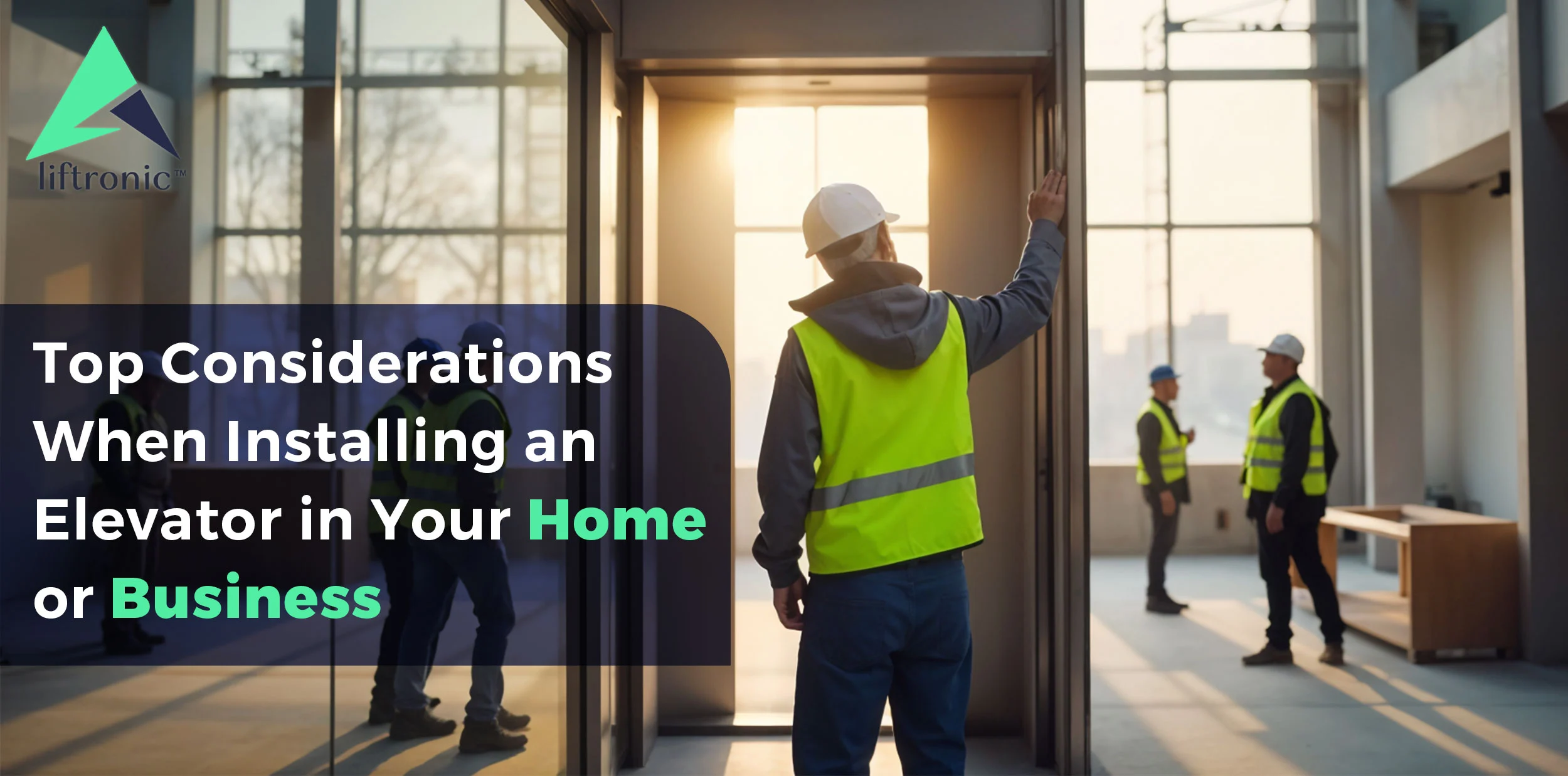Installing an elevator in your home or business can make your life so much easier and enhance the accessibility, convenience, and property value. However, when you have to choose an elevator, there are various considerations to make sure it serves all your functional, aesthetic, and budgetary needs. The guide outlines the key considerations when installing an elevator in your home or business, hence enabling you to make a better decision.
1. Purpose of the Elevator
Knowledge of the main reason for an elevator is important.
- Residential Use: In homes, elevators are usually put in to enhance the accessibility of older family members, give a luxurious feel, or make access to multi-storey homes easier.
- Commercial Use: In businesses, elevators serve to support heavy traffic and meet accessibility requirements as well as for goods transportation.
2. Type of Elevator
There are various kinds of lifts for different uses:
- Hydraulic Lifts: Inclined to function softly and silently; applied largely in buildings
- Traction lifts: Generally applied in business enterprises and tall buildings
- Without-pit lift: Good for buildings where space or demand is limited
- Cargo Lift: Constructed for use by heavy cargo in a commercial environment.
3. Space Availability
The available space will influence the size, type, and design of your elevator.
- Compact Elevators: Great for homes with limited space.
- Larger Cabins: Suitable for commercial use to accommodate more passengers or goods.
- Ensure compliance with building codes regarding shaft dimensions and pit requirements.
4. Accessibility Requirements
- Ensure the elevator is accessible, that is, wheelchair accessible.
- Use wide doors, spacious cabins, and braille-accessible controls to accommodate all users.
5. Design and Aesthetics
An elevator can add beauty to your property:
- Customizable Interiors: Choose materials and finishes that match your décor.
- Glass Elevators: Provide a sleek, sophisticated look, ideal for residential and commercial applications.
- Minimalist Designs: Blend with the architecture.
6. Energy Efficiency
Choose elevators that are energy-efficient to reduce the operational costs:
- Regenerative drives that decrease power consumption.
- LED lighting and automatic shutdown of non-essential features when idle.
7. Safety Features
Safety is of the utmost importance when installing an elevator:
- Emergency stop buttons and alarm systems.
- Automatic rescue devices that ensure the cabin reaches the nearest floor in case of a power failure.
- Overload sensors to avoid accidents.
8. Maintenance and Servicing
Regular maintenance is essential for smooth operation and longevity.
- Choose a reliable elevator provider with a strong after-sales service network.
- Schedule periodic inspections to ensure safety compliance.
9. Cost Considerations
Understand the complete cost of installation, which includes:
- The elevator system.
- Construction or retrofitting expenses.
- Long-term maintenance and operational costs.
10. Building Codes and Regulations
Ensure your elevator complies with local building codes and regulations. This is especially critical for commercial buildings, where stringent safety and accessibility standards apply.
Conclusion
Installing an elevator in your home or business is a significant investment that improves functionality and value. By considering factors like purpose, space, design, safety, and energy efficiency, you can choose an elevator that perfectly suits your needs.
Discover the best-in-class elevator solutions at Liftronic Elevator. With customizable designs and cutting-edge technology, we make vertical mobility efficient, safe, and stylish for every space.
